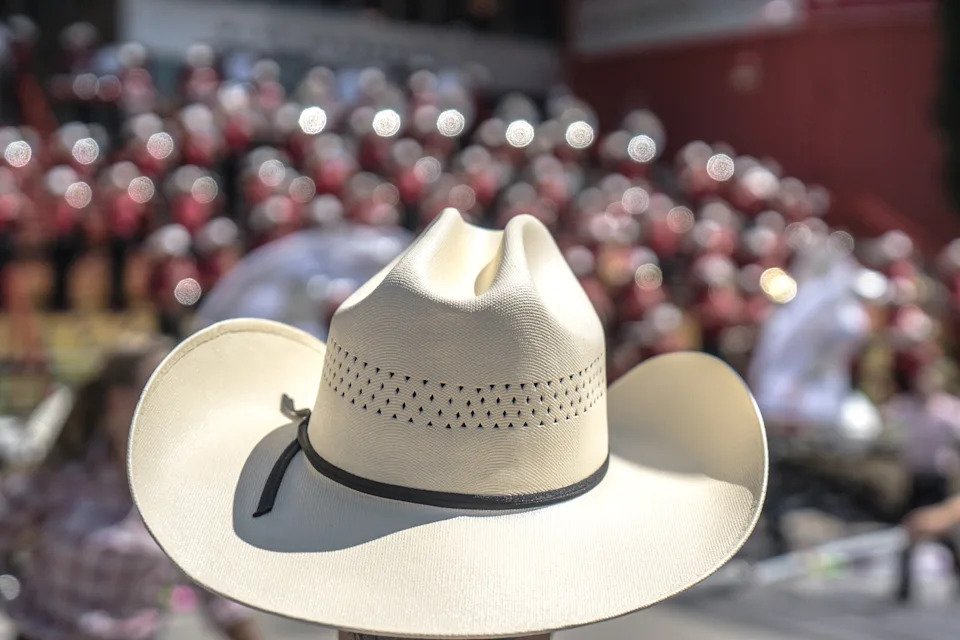Donald Trump said he will spare undocumented farm workers from deportation if their bosses can vouch for them.
The US president floated the idea for the exemptions, which could also apply to hotel and restaurant workers, during a visit to Iowa.
Legislation is already being drafted for the carve-out how to deal with undocumented agricultural workers with Kristi Noem, the homeland security secretary.
“You know, they’ve had people working for them for years. And we’re going to do something … we’re going to sort of put the farmers in charge,” he said on Thursday night.
“If a farmer has been with one of these people that worked so hard – they bend over all day, we don’t have too many people that can do that, but they work very hard, and they know him very well, and some of the farmers are literally, you know, they cry when they see this happen.
“If a farmer is willing to vouch for these people, in some way, Kristi, I think we’re going to have to just say that’s going to be good, right?”

Donald Trump speaks with reporters in Iowa alongside Kristi Noem, right – Alex Brandon/AP
Mr Trump was repeating remarks he made earlier in the week.
Underpinning the proposed exemptions is a dispute within the administration, with Brooke Rollins, the agriculture secretary, pushing for concessions for farmers and their workers, while immigration hardliner and White House deputy chief of staff Stephen Miller strongly opposes any concessions.
At one point, raids on farms, meatpacking plants and restaurants were paused.
But they were resumed again after immigration hawks, including Mr Miller and Ms Noem, leaned on the president.
Mr Trump’s remarks this week suggest that he could be leaning towards backing his agriculture secretary after all.
According to the Centre for Migration Studies, there are around 283,000 undocumented farm workers in the US, with nearly half being employed in California; other estimates put the figure even higher.
More than 80 per cent come from Mexico, with the remainder hailing from Guatemala, Honduras, El Salvador and Nicaragua.
Agriculture industry hit by deportation drive
The Trump deportation drive has wrought havoc on the agriculture industry. Fearful of being picked up by Immigration and Customs Enforcement (ICE), as many as 70 per cent of farm workers in some parts of the country have been staying away.
This has led to crops rotting in fields and labour shortages at meat-packing facilities.
“We do not have enough workforce in the United States to do manual work, to do those jobs that other people are not qualified to do and do not want to do,” Alexandra Sossa, chief executive of Farmworker and Landscaper Advocacy Project, told Newsweek.
“For example, we are running into a problem where we do not have enough farm workers to grow the food we eat every day.”
According to Farmonaut, an agriculture technology company, the stricter immigration polices are creating a labour shortage, which is putting up food prices.
There is similar pressure on the hospitality industry, with hotels and restaurants heavily dependent on immigrant labour.
Even Mr Trump’s Mar-a-Lago has imported foreign workers, with Department of Labour statistics showing that it applied for 136 H-2B visas for non-agricultural workers in 2023.
Trump urged to fix long-term labour issues
“We are encouraged that the president recognises the valuable contributions farmworkers play in America’s food security,” John Walt Boatright, director of Government Affairs for the American Farm Bureau Federation told The Telegraph
“Farmers support a secure border and safe communities, and they also understand that without a stable workforce, it’s not possible to get food from the farm to the tables of America’s families.”
“We have not seen specifics on President Trump’s plans, but we urge him and Congress to address long-term agriculture labour issues by revising overreaching regulations, modernising current guestworker programmes to allow for year-round access to employees, and fixing outdated wage rate calculations that put help out of reach for many farmers.”
While the administration is willing to make concessions for these key groups of workers, there will be no let-up in ICE’s activities.
Within days of the announcement of an “Alligator Alcatraz” to house deportees in Florida, Alaska, albeit tongue in cheek, suggested its large bear population could do a similar job in the frozen north.
The state has the option of bidding for a slice of the $5 billion earmarked in the Big Beautiful Bill for the construction and renovation of ICE’s detention facilities.







